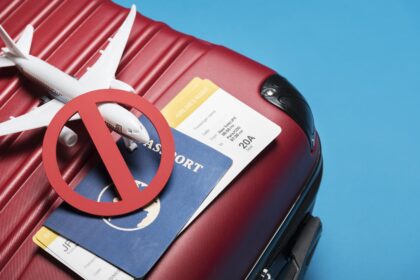Introduction
Traveling can be an exhilarating experience, exposing you to new cultures, cuisines, and adventures. However, the excitement of exploring unfamiliar territories can sometimes take a toll on your health. From jet lag and dehydration to digestive issues and exposure to new germs, the challenges of travel can leave you feeling less than your best. But with a little preparation and mindfulness, you can maintain your well-being and enjoy your travels to the fullest. Here are some tips to help you stay healthy while on the road.
- Stay Hydrated
Dehydration is a common issue for travelers, especially when flying or visiting hot climates. Make sure to drink plenty of water throughout your journey, and carry a reusable water bottle to refill as needed. Avoid excessive alcohol and caffeine, which can contribute to dehydration.
- Get Enough Sleep
Jet lag and irregular sleep patterns can disrupt your body’s natural rhythms and leave you feeling fatigued. Try to adjust to the new time zone as quickly as possible by exposing yourself to natural light during the day and avoiding screens before bedtime. Bring earplugs and an eye mask to help you sleep better in unfamiliar environments.
- Pack Healthy Snacks
While it’s tempting to indulge in local cuisine, relying solely on restaurant meals can lead to poor nutrition and digestive issues. Pack healthy snacks like nuts, dried fruits, and energy bars to keep your energy levels up and avoid overindulging in unhealthy options.
- Stay Active
Traveling often involves a lot of sitting, whether on planes, trains, or in cars. Make an effort to stay active by incorporating walks, stretching, or bodyweight exercises into your daily routine. Many hotels offer fitness centers or pools, or you can explore your destination on foot.
READ ALSO: Top 5 Cheapest Cities in Western Europe for Budget Travelers
- Prioritize Hygiene
Exposure to new environments and germs can increase your risk of getting sick. Pack hand sanitizer and disinfecting wipes to keep your hands clean, especially before eating or touching your face. Avoid sharing utensils or drinks with others, and wash your hands frequently with soap and water.
- Get Vaccinated
If you’re traveling to areas with increased health risks, consult your doctor or a travel clinic about any necessary vaccinations or preventive medications. It’s better to be proactive and protect yourself from potential illnesses.
- Manage Stress
Travel can be stressful, especially when dealing with language barriers, navigating unfamiliar surroundings, or facing unexpected challenges. Practice stress-management techniques like deep breathing, meditation, or journaling to keep your mind and body relaxed.
- Listen to Your Body
Don’t push yourself too hard when you’re feeling unwell or overly fatigued. Rest when needed, and don’t hesitate to seek medical attention if you experience persistent symptoms or a significant health concern.
By incorporating these tips into your travel routine, you can minimize the negative health impacts of being on the road and fully embrace the joys of exploring new destinations. Remember, prioritizing your well-being is an essential part of having a truly memorable and enjoyable travel experience.
Frequently Asked Questions
- What are some healthy snack options to pack for a long flight?
Some great options include fresh or dried fruits, nuts, seeds, veggie sticks, whole-grain crackers, and protein bars. Avoid overly salty or sugary snacks, which can contribute to dehydration and energy crashes.
- How can I stay active in a hotel room?
You can do bodyweight exercises like push-ups, squats, lunges, and crunches. Many hotels also offer workout videos or yoga mats in the rooms. If you have space, you can pack a resistance band or small exercise equipment for a more challenging workout.
- What should I do if I start feeling sick while traveling?
If you experience symptoms like fever, severe digestive issues, or persistent coughing, seek medical attention immediately. It’s also a good idea to carry a basic medical kit with medications for common travel ailments like diarrhea, motion sickness, and pain relief.
- How can I manage jet lag effectively?
Adjust your sleep schedule a few days before your trip by gradually shifting your bedtime closer to the new time zone. Stay hydrated, avoid caffeine close to bedtime, and try to get exposure to natural light during the day to help reset your body’s clock.
- Are there any specific hygiene precautions for traveling to developing countries?
In addition to frequent handwashing, it’s advisable to avoid drinking tap water, use bottled or purified water for brushing your teeth, and be cautious with raw or undercooked foods. Pack a travel-sized hand sanitizer and disinfecting wipes for when soap and water are not readily available.
Conclusion
Staying healthy while traveling requires a proactive approach and a little preparation. By prioritizing hydration, sleep, nutrition, physical activity, hygiene, and stress management, you can minimize the impact of travel on your well-being and fully immerse yourself in the experience.
Remember, traveling is an opportunity to create cherished memories and broaden your horizons. By taking care of your body and mind, you’ll be better equipped to embrace the adventures that await and make the most of your journey.
Ultimately, maintaining good health while on the road is an essential aspect of truly enjoying your travels. With these tips and a mindful approach, you can embark on your next adventure feeling energized, resilient, and ready to create unforgettable experiences.
In another article, 10 Travel Essentials To Never Leave Home Without






